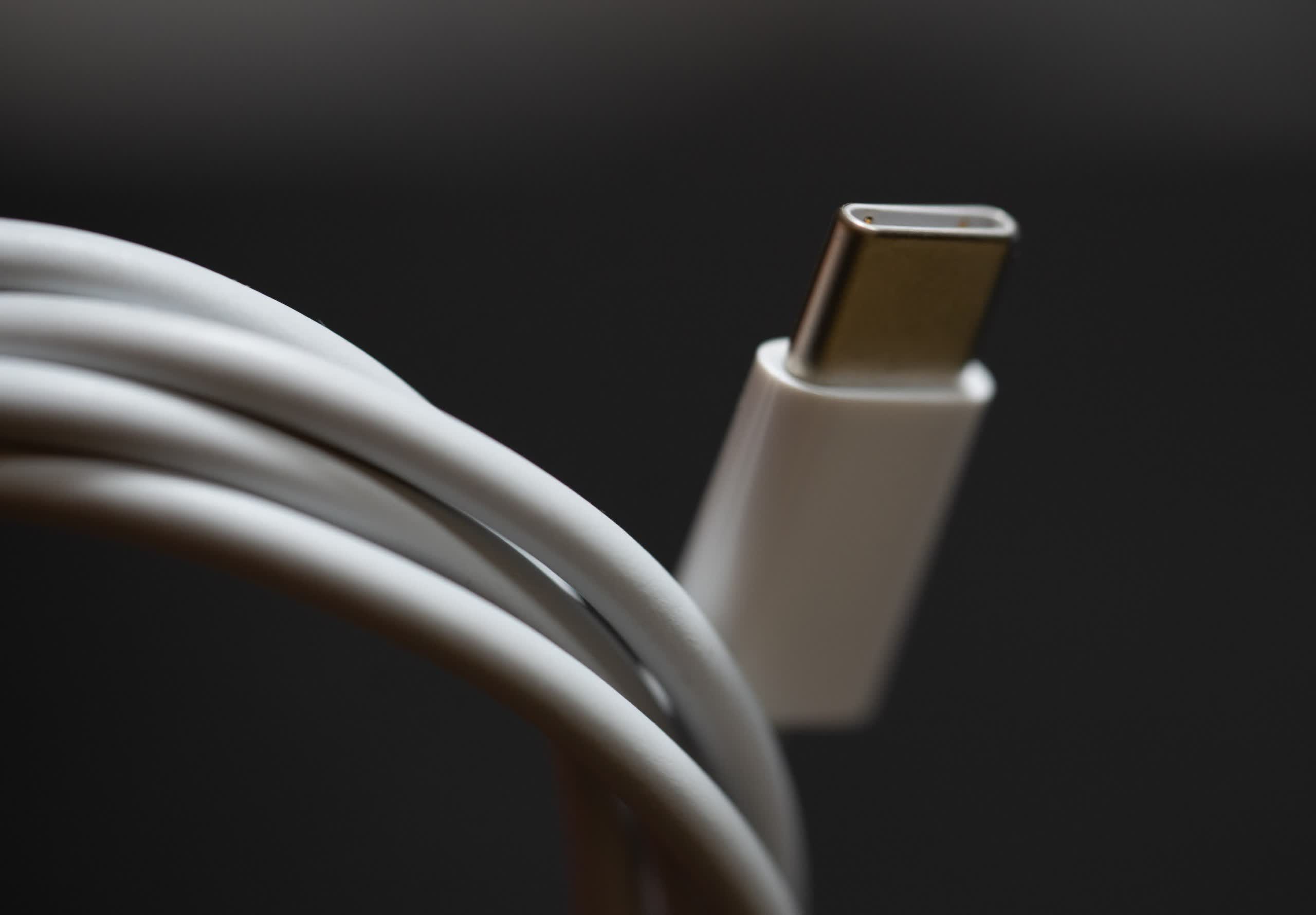TL;DR: The European Council has affirmed its "common charger directive" after overwhelming EU parliamentary approval. The regulation only needs to be formally signed by the presidents of the EU and EC. It will mandate that small chargeable electronics, including laptops, adapted the USB-C charging standard. It kicks in in 2024 for most equipment and in 2026 for laptops.
The European Council (EC) officially approved its USB-C mandate on Monday. The President of the European Parliament and the President of the European Council only need to sign off on the rule. Earlier this month, the European Parliament passed the common charger directive in a landslide vote of 602-13. Electronic manufacturers will have to design devices sold in the European Union with USB-C charging by the fall of 2024. Laptop makers have until the spring of 2026 to comply with the EC's directive.
"We all have at least three mobile phone chargers at home. Looking for the right charger, either at home or at work, can be quite annoying," said Czech Minister for Industry and Trade. "On top of this, these chargers amount to 11,000 tons of e-waste every year. Having a charger that fits multiple devices will save money and time and also helps us reduce electronic waste."
The regulation also requires manufacturers to allow customers the choice of purchasing devices with or without chargers included. Apple and others have already begun shipping phones without chargers. This stipulation of the rule does not force them to include chargers. Instead, it wants products that currently bundle in a charger by default to offer an "unbundled" option. The Council will evaluate this part of the directive for four years. After that, it may make unbundling mandatory.
Common charger adopted "'@EUCouncil has given its final approval to the common charger directive.
--- EU Council Press (@EUCouncilPress) October 24, 2022
This means that in 2024, a USB-C port will become mandatory for many electronic devices such as mobile phones ", tablets, and headphones 🎧
More '
The Brazilian government is looking to pass similar legislation, but it might be a moot point. The EC has been arguing for roping OEMs into a unifying charging standard for over a decade. Since most manufacturers have already adopted USB-C on their own, Apple seems to be one of the last holdouts, preferring its Lightning port over the more common connection.
However, the Cupertino giant has already moved several devices to USB-C. Furthermore, recent reliable rumors confirm that it is planning to phase out the Lightning port on its remaining devices --- primarily the iPhone. According to the directive, it will also have to shift its AirPods, Magic Mouse, and Magic Keyboard to USB-C within 24 months. So by the time Brazil adopts anything official, the world may have already made the transition.
Additionally, the Brazilian government recently demanded Apple to revert back to bundling chargers in with iPhones. So its copycat move toward forcing a USB-C standard seems counter intuitive to its stance on unbundling.
The UC went far from naming names. Even though Apple and its Lightning port seem like apparent targets, the mandate should apply to other small electronic devices like vapes, portable GPS units, cameras, and similar products using micro USB and Firewire chargers.
Image credit: Tony Webster
